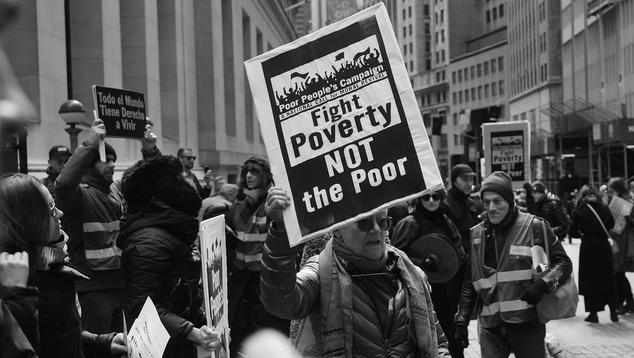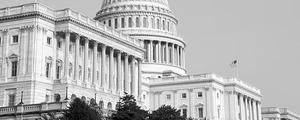This may come as no great surprise, but income matters. As my colleague Megan Brenan recently demonstrated, income is positively related to people's satisfaction with various life situations Gallup routinely assesses -- including not only standard of living and housing, but also such things as the community Americans live in and their family life.
Another colleague, Dan Witters, Research Director for Gallup's National Health and Well-Being Index, confirms the impact of income. As Dan says, "Wellbeing goes up steadily with improving income, and does so across all five elements [of wellbeing]." He also notes that higher income "greatly increases the chances that you will like what you do and that you will get to regularly use your strengths in your life."
Politicians are not oblivious to this relationship and have long focused on Americans and their incomes in political campaigns. Who among us can forget the 1928 presidential election, in which the Republican Party (and its candidate Herbert Hoover) claimed that "wages, dividends, progress and prosperity say 'Vote for Hoover,'" along with the now famous claim that Republicans had put a "chicken in every pot" (and a "car in every garage, to boot").
Today, politicians primarily talk about incomes in the context of the program already in place by which incomes can be minutely adjusted -- the federal income tax system. Politicians intent on changing the nation's income distribution can do so more easily by tinkering with the existing income tax structure than by proposing new programs built from scratch (although those exist as well, as we will see below).
Clearly, Republicans -- and their presumed 2020 presidential candidate, Donald Trump -- will highlight the 2017 Tax Cuts and Jobs Act, which they claim has been highly successful and singularly effective in increasing Americans' incomes. The public's acceptance of that argument, however, is not yet evident. Recent Gallup polling shows that Americans remain more likely to disapprove than approve of the tax overhaul as they look back on it. And only 14% of Americans say their federal income taxes have gone down as a result of the law, while 21% say their taxes have actually gone up (a plurality of 43% of Americans say they don't know how the law has affected their taxes).
For their part, Democrats will propose further tweaking the tax code to increase incomes for Americans at the lower end of the distribution, primarily by manipulating earned income tax credits. Available polling shows support for these types of proposals, and we know that 48% of Americans say lower-income people already pay too much in taxes.
What about mechanisms outside of the tax code that can be used to affect incomes? One of these put forth by a number of candidates is raising the minimum wage, historically favored by most Americans in Gallup surveys. Research from three years ago also shows support for increasing worker eligibility for overtime pay, yet another way to increase incomes for some segments of the population.
And then there is the renaissance of the idea of providing a guaranteed basic income for every household in the country. One 2020 Democratic presidential candidate, Andrew Yang, has built his campaign around the proposal to provide all U.S. adults with $1,000 a month as part of a universal basic income system. The public's opinion of this idea appears to be mixed. Gallup tested the concept of a universal basic income to help workers displaced by advances in artificial intelligence -- finding a split reaction from the public that matches the general results from other surveys.
Proposals to Lower Americans' Incomes
All of what I've discussed above focuses on the idea of increasing Americans' incomes. But a number of Democratic candidates are looking at using the tax system to lower people's incomes, mainly those at the top end of the income distribution.
Generally speaking, Americans favor this idea of increasing taxes on the rich, even when the question wording includes "heavy taxes on the rich." Additionally, they have long felt that upper-income Americans pay too little in taxes. But support for specific redistribution plans varies, depending on how the question is asked and what is specified in the question wording. And, as I have pointed out, Americans as a whole like the idea of having a rich class in society, so policymakers have to be careful not to take the idea too far. Despite increased talk about socialism, no candidate that I am aware of has argued for leveling the income distribution in its entirety.
Interestingly, the Dodd-Frank Wall Street Reform and Consumer Protection Act of 2010 has given some policymakers a more empirical basis for approaches to decreasing incomes at the top of the distribution. Dodd-Frank required all large companies to periodically report the annual total compensation of the company's CEO along with the median compensation of all other employees in the company. The law assumed that putting a spotlight on the ratio between the total pay of the CEO and the average pay of everybody else would produce social benefits. Dodd-Frank doesn't legislate controls on the CEO-to-employee compensation ratio.
But others have discussed using pay ratios as the basis for policy. Residents in Switzerland in 2013 had the opportunity to vote on a so-called 1:12 law that would have limited Swiss company executives' pay to 12 times the wages of their lowest-paid workers. This initiative failed to pass but is indicative of how a ratio can be used as the accounting mechanism for reducing top incomes.
In the U.S., there have been a number of proposals for limiting the pay of top executives. Public opinion on these efforts is mixed. Last year we updated a question asking Americans about the general idea of the federal government taking steps to limit the pay of executives at major companies -- and found split reactions, with about as many favoring as opposing the idea.
Taking this idea a bit further, author Sam Pizzigati wrote an entire book focused on the idea of a "maximum wage" which would explicitly limit high incomes (The Case for a Maximum Wage). Pizzigati asks the rhetorical question, "Could capping top incomes tackle our rising inequality more effectively than conventional approaches to narrowing our vast economic divides?" He then answers that question with a yes. We have no data on public opinion about the maximum wage concept, and I'm not aware of any political candidates who have picked it up using these words.
Caveats
The general idea of the federal government in one way or another attempting to control the distribution of income in this country is not new, of course, and stretches back to the 1913 ratification of the 16th Amendment, which established the federal income tax. Discussions of changes to that tax system have been with us ever since, and certainly we will see them again and again in the months ahead as the presidential election heats up. We are also going to see proposals to increase or limit incomes based on new policies and laws beyond the existing tax law.
In addition to assessing public opinion on these issues, as I've done here, two other considerations need to be taken into account. First, Americans are historically leery of increased government involvement in their lives, which is important given that all of these proposals are based on the assumption that government can legitimately intervene in the public's monetary compensation. Second, these proposals do not directly speak to the ways in which specific individuals or classes of individuals defined by their demographic characteristics can or cannot move up in the economic system. These considerations of social mobility are another important issue altogether.




